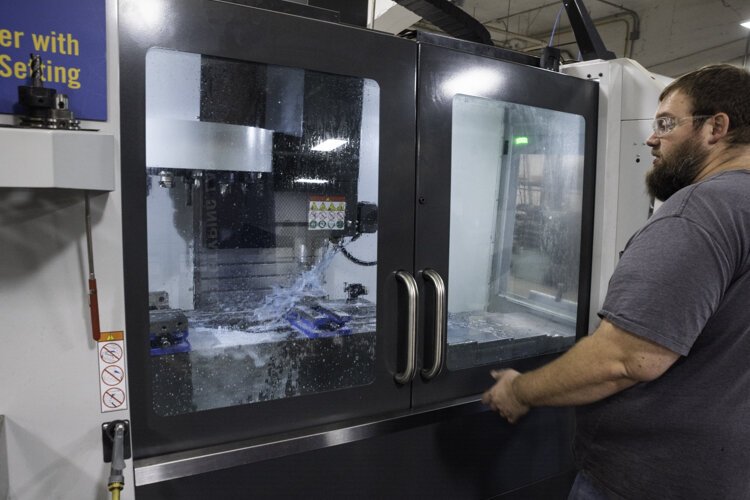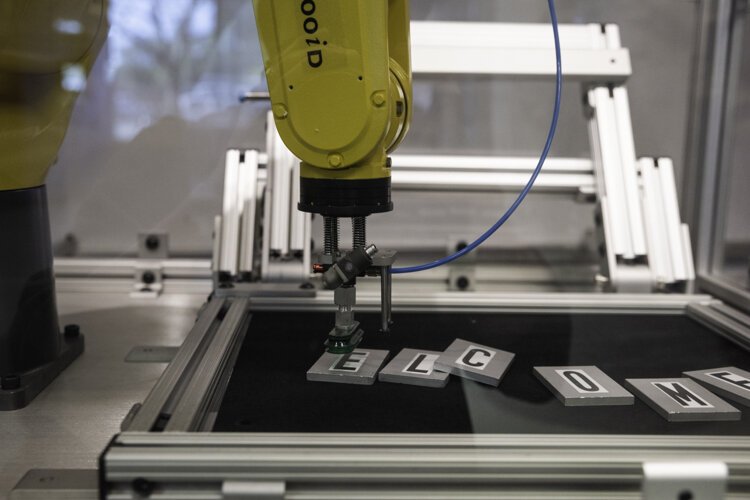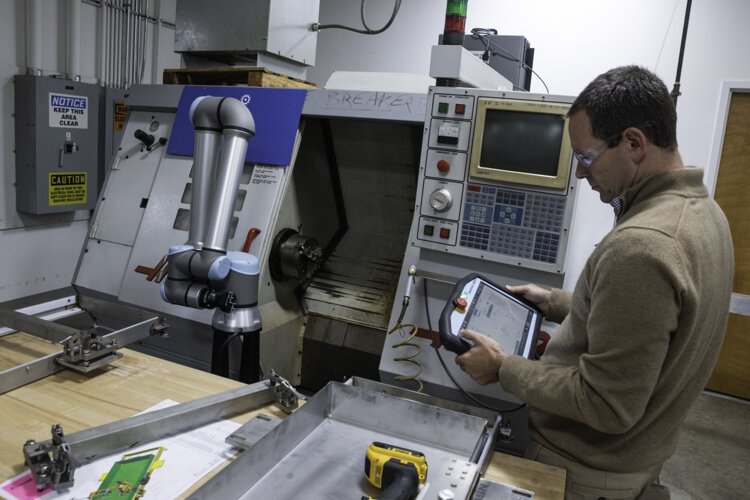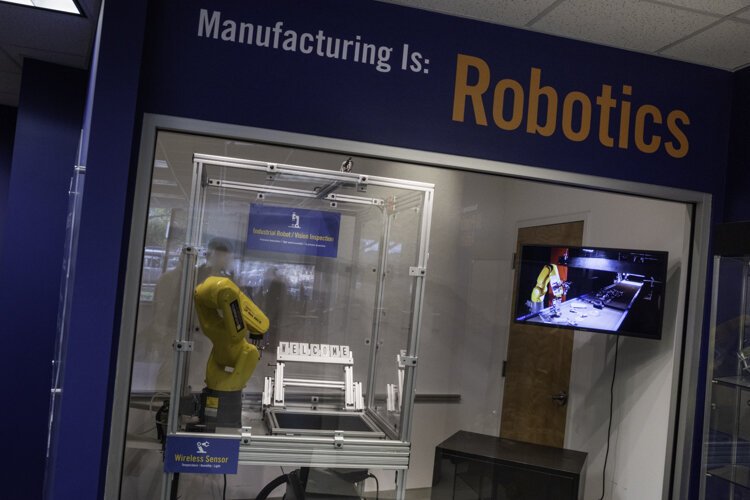New MAGNET program designed to boost manufacturing companies’ post-pandemic recovery
The pandemic has been tough on many industries, with manufacturing very much part of that unfortunate equation. COVID-19 has been especially difficult for small to medium-sized manufactures hit by furloughs, supply chain disruptions, and production shut-downs.
Cleveland’s Manufacturing Growth Advocacy Network (MAGNET) aims to change this trajectory through a new program that provides struggling Cuyahoga County manufacturing firms hands-on consulting and assistance. Earlier this month, MAGNET received a $624,316 grant from the U.S. Department of Commerce’s Economic Development Administration (EDA) to support the burgeoning effort. The grant is part of the CARES Act Recovery Assistance awards.
 The R-7 program—named for the “seven Rs” MAGNET deems indispensable for regional manufacturing success—will aid besieged businesses in driving job creation and product launches, ideally generating private investment and future financial stability.
The R-7 program—named for the “seven Rs” MAGNET deems indispensable for regional manufacturing success—will aid besieged businesses in driving job creation and product launches, ideally generating private investment and future financial stability.
“Our motivation is how can we help these small companies recover and get back to where they were prior to the pandemic,” says Michael O’Donnell, vice president of operations at MAGNET. “We want to help folks improve efficiencies, streamline production, cut costs and re-enter the market.”
Not all of the county’s 1,800-plus builders and creators will qualify or even need MAGNET’s assistance, notes O’Donnell. A manufacturer making essential packaging materials, or one that nimbly transitioned into face mask or hand sanitizer production, won’t be in the same circumstance as a firm assembling discretionary items like flat-screen television displays.
“What’s been really bad for small and midsize manufacturers is the supply chain,” explains O’Donnell. “Companies two or three levels down are getting hitby interruptions [for operations], like trying to find computer parts for an engine. That’s going to trickle down to these smaller companies.”
A powerful partnership
Initial talks around R-7 began in the middle of 2020—a tumultuous time when stay-at-home orders shuttered factory doors countrywide.
Coming out of the pandemic requires centering on the seven Rs of technical assistance: Restarting production, Reskilling workers, Relaunching through new innovations, Refocusing on growing industries, Reconnecting with customers, Reshoring supply chains, and Resecuring businesses.
 In practice, MAGNET experts will partner with participants to nurture employment gains and boost economic growth. For example, using a high-tech CNC machine can upgrade a company’s production speed to rival that of offshore manufacturers. Industry 4.0 technology—the marriage of physical production with smart digital technology, machine learning, and big data—can further increase capacity and reduce cost in the race to post-pandemic competitiveness.
In practice, MAGNET experts will partner with participants to nurture employment gains and boost economic growth. For example, using a high-tech CNC machine can upgrade a company’s production speed to rival that of offshore manufacturers. Industry 4.0 technology—the marriage of physical production with smart digital technology, machine learning, and big data—can further increase capacity and reduce cost in the race to post-pandemic competitiveness.
“The hope is for companies to see technology with their own eyes, then upgrade the skills of operators running those machines,” O’Donnell says.“Technology will drive new jobs and allow companies to attack markets outside of Northeast Ohio.”
Industry 4.0 had been gaining momentum prior to the virus crisis, transforming manufacturing processes in everything from production efficiency to product automation. Suppliers seeking out partners not only want a great looking facility, but a sustainable shop embracing advanced techniques, data systems and cybersecurity protection as well.
Meanwhile, the R-7 program’s “Restart” piece will provide safer plant layouts as well as technologies to clean and protect production areas, with an immediate goal of opening assembly lines for returning workers. “Reshore” is set to analyze the supply chain, introducing new suppliers to drive down prices of foreign-made parts.
The R-7 program was developed in collaboration with area partners including Cuyahoga County, the City of Cleveland, Fund for Our Economic Future, Greater Cleveland Partnership, Team NEO and JobsOhio.The federal grant MAGNET received will be matched by more than $150,000 in local funds.
Grant dollars will defray the consulting fee MAGNET is charging for the program. In May, the non-profit consulting group will begin connecting with businesses, reaching out via social media and through an established network of regional engagement directors.
 With manufacturing a community mainstay—one counting for one in five jobs and indirectly supporting about 50% of the economy—the program comes with certain measures of success.
With manufacturing a community mainstay—one counting for one in five jobs and indirectly supporting about 50% of the economy—the program comes with certain measures of success.
Increased sales, jobs gained and retained, and an enterprise’s ability to reinvest in its own operations will pave the road ahead from recovery to opportunity.
O’Donnell says MAGNET’s history of practical consulting has it primed to meet a changed manufacturing landscape.
“This program is consistent with the types of things we do now—it’s not like we received a grant for something where we have to change our strategic direction,” he says. “These are services we’ve had for quite a long time, so we feel well-prepared.”



